by infonistaadmin | Apr 18, 2016 | Job Hunting, LIS Career Options, Special/Corporate Librarianship
 Where can your LIS skills add value to a consumer-goods company, a software development organization, a green-tech developer, a national online retailer, or any of the myriad other organizations that could really benefit from a smart information professional, whether they know it (yet) or not?
Where can your LIS skills add value to a consumer-goods company, a software development organization, a green-tech developer, a national online retailer, or any of the myriad other organizations that could really benefit from a smart information professional, whether they know it (yet) or not?
Actually, those skills can address multiple needs throughout each of these potential employers; the key is understanding how and where to “plug in.” (more…)
by infonistaadmin | Apr 11, 2016 | LIS Career Strategy, LIS Students, Professional Development

Professional conferences can be a great LIS career booster – in-person networking, learning from cutting-edge presentations, immersing yourself in the dynamic energy of the profession or a new-to-you industry. There’s just one problem: conferences, including their registration, housing and travel costs, can be way expensive.
In addition, the broader your LIS interests and areas of expertise, the wider the range of conferences that might pique your interest. PLA, SLA, ALA, AASL, ACRL, and AIIP might just be the starters. Then there’s Computers in Libraries and Internet Librarian, the Charleston Conference, KM World, ARMA Live, the ASIS&T annual conference, and dozens of other specialized information professional events.
Information professionals are even finding a home at theoretically unrelated events such as the music and tech festival, South by Southwest (SXSW), an indicator of the expanding range of information/library expertise and interests.
If you can only afford one, does that mean you miss out on everything else?
Not necessarily. (more…)
by infonistaadmin | Apr 4, 2016 | LIS Students, Professional Development
 As you grow your LIS career, one of the most effective ways to build your professional reputation and visibility is to present at conferences.
As you grow your LIS career, one of the most effective ways to build your professional reputation and visibility is to present at conferences.
You’ll have a chance to share your expertise with colleagues interesting in learning more about your topic, and create credibility for your professional knowledge.
If you’ve never gone through the proposal process, however, it can be a bit daunting at first. Rest assured, it’s actually a pretty simple process. (more…)
by infonistaadmin | Mar 29, 2016 | LIS Career Strategy
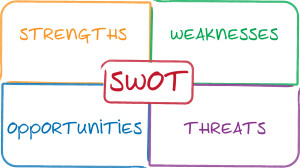
Businesses use SWOT analyses (strengths, weaknesses, opportunities, and threats) to help them plot their next moves. Where should they spend their money, where save it? What opportunities should they go after, and which aren’t worth the effort? That same approach can be just as valuable for you as figure out your next career moves. (more…)
by infonistaadmin | Mar 21, 2016 | LIS Career Strategy
 One of the challenges you’re likely to face during your LIS career is whether or not to take a job that pays less than your previous (or current) one.
One of the challenges you’re likely to face during your LIS career is whether or not to take a job that pays less than your previous (or current) one.
If the finances are doable, there can be some great reasons to consider it. Although the right choice depends to a great degree on your personal circumstances, here are the questions that will help you get to your best answer. (more…)
by infonistaadmin | Mar 14, 2016 | LIS Career Strategy
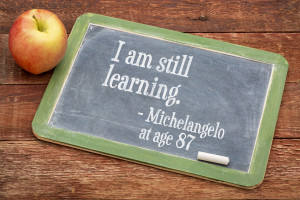 By the time you’ve reached a certain age (okay, let’s say any spot north of forty), you generally feel like you’ve pretty much figured things out. Or if not, you’re perhaps trying to hide that fact from the rest of the world, especially your professional peers.
By the time you’ve reached a certain age (okay, let’s say any spot north of forty), you generally feel like you’ve pretty much figured things out. Or if not, you’re perhaps trying to hide that fact from the rest of the world, especially your professional peers.
The good news: you can stop hiding; we’re all in the same boat!
Getting Your Head around Not Knowing
One of the greatest and most unremitting challenges of the LIS profession is that it’s moving so quickly and in so many directions that it’s really tough to keep your skills current. It’s even tougher to reach a level of competency that won’t become obsolete within the next five years.
From a career standpoint? Pretty daunting. From an ego standpoint? Pretty demoralizing.
Why? Because most of us in the profession are borderline if not certifiable perfectionists – it feels pretty awful to be in “beginner’s mind,” that place of not even knowing what you don’t know. But it’s clear that how good we become at getting comfortable with this discomfort will determine whether we stay professionally viable or become increasingly marginalized.
This reality has been driven home for me as I’ve worked on starting a new project/business. My business plan was exquisitely (I believed) well-thought-through, organized, and formatted (and of course based on all of my research about how to create a killer business plan). Then I started actually doing the work, and was stunned to realize how much I hadn’t, well, realized. (more…)
by infonistaadmin | Mar 7, 2016 | Networking
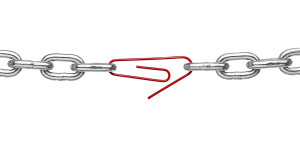
Pop quiz: which is likelier to help build your career opportunities – your network’s strong ties (people with whom you have share professional interests and experience) or weak ties (people outside your professional sphere)?
Although it would seem like your strong ties would be the obvious answer, nope – it’s those weak ties that have been shown to do people the most good. (more…)
by infonistaadmin | Feb 25, 2016 | LIS Career Options, Professional Development
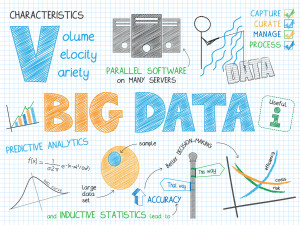
One of the questions with emerging LIS career opportunities is how to retool your traditional library skills to bridge into these cool new career paths.
If you’re interested in data librarianship, I’d suggest your first move be to read Amy Affelt’s excellent The Accidental Data Scientist (Information Today, 2015). Consider Affelt’s book to be “everything you wanted to know about data librarianship but never would have had a clue to ask.”
Learning More
After you’ve read the book, however, you may be so intrigued that you decide it’s time to make a serious move in the direction of data librarianship. If so, you have several choices for mastering the requisite skill set. One way would be to try to find ways to learn on the job, if your current work situation lends itself to this option – is there someone who would be willing to mentor you or share their knowledge, and perhaps give you an opportunity to try out your developing skills on a volunteer or training basis? (more…)
by infonistaadmin | Feb 22, 2016 | Freelancing, Independent Info Pro
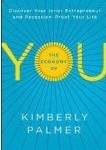 Whether side gig, side hustle, freelancing, or moonlighting, doing work on your own time in addition to your regular job is a terrific way to build some resiliency into your career – and finances. The place to start? Kimberly Palmer’s The Economy of You: Discover Your Inner Entrepreneur and Recession-Proof Your Life (AMACOM, 2014).
Whether side gig, side hustle, freelancing, or moonlighting, doing work on your own time in addition to your regular job is a terrific way to build some resiliency into your career – and finances. The place to start? Kimberly Palmer’s The Economy of You: Discover Your Inner Entrepreneur and Recession-Proof Your Life (AMACOM, 2014).
According to Palmer, solid, sustainable side-gig ideas usually have the following characteristics: (more…)
by infonistaadmin | Feb 11, 2016 | Good Reads
The Embedded Librarian by David Shumaker
 Where can your LIS skills add value to a consumer-goods company, a software development organization, a green-tech developer, a national online retailer, or any of the myriad other organizations that could really benefit from a smart information professional, whether they know it (yet) or not?
Where can your LIS skills add value to a consumer-goods company, a software development organization, a green-tech developer, a national online retailer, or any of the myriad other organizations that could really benefit from a smart information professional, whether they know it (yet) or not?







